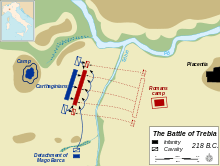Grand strategy wargame
| Part of a series on: |
| Wargaming |
|---|
 |
|
A grand strategy wargame is a wargame that places focus on grand strategy: military strategy at the level of movement and use of an entire nation state or empire's resources.
Scope of games
Grand strategy wargames typically focus on a war or series of wars, often over a long period of time. Individual units, even armies, may not be represented; instead, attention is given to theaters of operation. All of the resources of the nations involved may be mobilized as part of a long-term struggle. The simulation typically involves political and economic as well as military conflict. At the most extreme end of this is the branch of strategy games in which the player assumes the role of the government of an entire nation-state and in which not conducting war is a possibility, such as in Victoria: An Empire Under the Sun.
Examples of grand strategy games where military tactics are highly abstracted or eliminated entirely include the board games Risk and Diplomacy. Another example which is slightly more realistic is Axis & Allies, although in it military factors are still highly abstracted. Games such as Rise and Decline of the Third Reich, Empires in Arms, and Empires of the Middle Ages are true wargames, in the sense that military units are specifically represented, and engage in direct combat based on specific military attributes. The Hearts of Iron and Europa Universalis series are examples of computer-based games of this type.[1]
Gameplay and dynamics
Games use various techniques and features to simulate aspects of national military strategy. Some games simulate industrial production of resources and military units. Others may enable various diplomatic moves and alliances.
For example, the game Axis & Allies utilizes a "price" for producing units, consisting of a quantity of production units allocated each turn and used to "pay" for each unit produced. Some games allow various nations to produce units at a set rate, corresponding to their actual real-world industrial and economic history.
Academic use
Because such games go beyond simple warfare to deal with economics, geography, history and politics they are especially useful in education and studies of international affairs.[2]
See also
- 4X
- Chronology of grand strategy video games
- Government simulation game
- List of board wargames
- Wargame (video games)
References
- ↑ Abner, William (2006). Gamer's Tome of Ultimate Wisdom. Indianapolis: Que. p. 11. ISBN 0789734656.
- ↑ Robert E. Horn (1977). The Guide to Simulations/games for Education and Training. ISBN 0-89401-002-6.